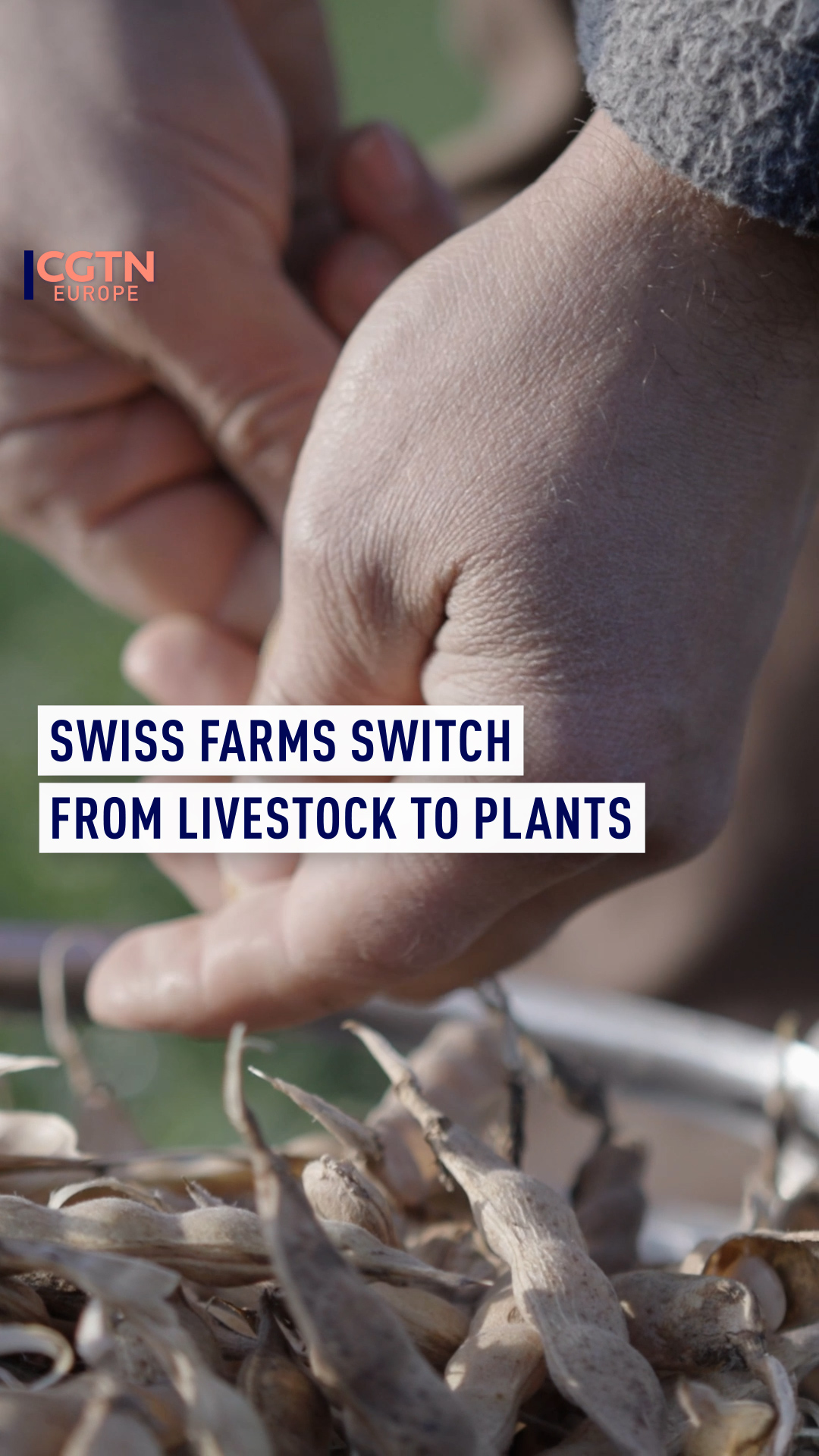00:48

One of the biggest greenhouse gas contributors in the food sector is livestock, partly due to their methane-emitting digestive system. In Switzerland the so-called 'Transfarmation' initiative has been trying to convince farmers to get rid of their polluting animals and go plant-based.
The scheme has had some success, with 'Transfarmation' advisors now overrun by interested cattle keepers.
About a year ago, Thomas and Fabienne got rid of almost all of their chickens and cows on their farm close to Bern. Now they give tours through their empty chicken battery to show interested farmers how the change works.
"The chickens used to lay their eggs here," Thomas told CGTN. "Now we're using it to dry our walnuts."

'Transfarmer' Fabienne tends to her sheep. /CGTN
'Transfarmer' Fabienne tends to her sheep. /CGTN
READ MORE
PM Donald Tusk: A new dawn for Poland?
Planned migration can be 'win-win' for climate displacement and labor shortages
Copenhagen's all-timber neighborhood
Transforming their farm from livestock to plants was a financial risk. But the Swiss couple wanted to put an end to polluting manure and poor animal living conditions. "We always had a very strong desire to stop having chickens, because we simply saw the animals suffering," said Fabienne.
Growing lupins, wheat and soy now accounts for the majority of their income. In exchange for donations the two also care for old, unproductive livestock that otherwise would have been slaughtered.
The number of Swiss farms switching from livestock to plant-based agriculture has doubled in the past two years. In total about 150 farms have joined Sarah Heiligstadt's 'transfarmation' initiative.
"Imagine that we feed 60 billion animals but that we are not able to feed all the humans on earth," Heiligstadt told CGTN. "This gets you thinking about how many emissions there must be, how much poverty there is induced by animal agriculture. And just imagine all these livestock individuals that need to be fed nowadays to feed humans...if you cut that back how many more people can you feed?"
The impact of a few hundred transformed farms on the country's food production is small, but symbolizes a change going on not just in Switzerland but all over the world.

Subscribe to Storyboard: A weekly newsletter bringing you the best of CGTN every Friday